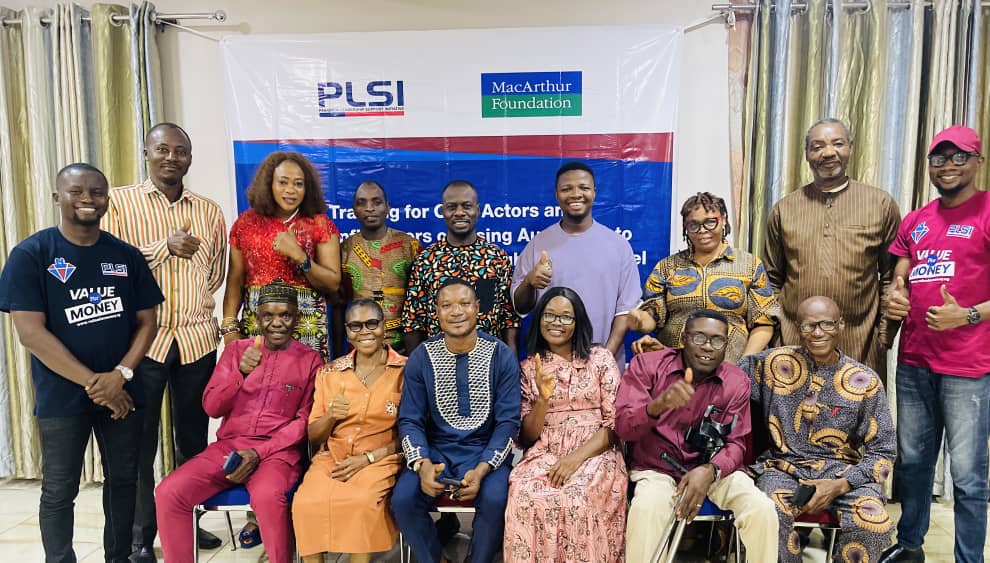Lawrence Nwimo, Awka
Stakeholders including civic actors, social influencers, and media practitioners in Anambra State have been called to adopt strategic use of audit data and recommendations to promote accountability and service delivery in the state.
They were also urged to activate participation in the public audit process as a means to curb corruption within public institutions and ensure that funds generated and allocated are utilised efficiently.
The call was made at a one-day training of the civic actors and social media influencers on the use of Audit Data to demand accountability at the subnational level in Nigeria.
The event organised by Paradigm Leadership Support Initiative (PLSI), a civic organisation fostering public accountability in Nigeria was held in collaboration with the Creative Minds Centre for Youths and Development through support from John D. and Catherine T. MacArthur Foundation.
Speaking at the event, Abulahi Adebayo said the workshop was to boost stakeholders’ understanding of the audit process and the roles and functions of the Auditor-General in the state.
According to him, such understanding promotes citizens’ participation and engagement as well as accelerates sustainable development in the state and beyond.
Taking the participants on the “Public Audit Cycle,” Adebayo explained that the importance of Public Finance Management (PFM) is that it promotes effective public service delivery and ensures efficiency and transparency in governance.
He also informed the participants that PFM promotes economic stability, fosters equitable allocation, and ensures the distribution of public resources.
He listed Fiscal framework, Budget preparation and formulation, Budget approval and appropriation, Budget implementation/procurement, accounting and reporting, and Control and Audit as the various stages of the annual budget cycle in the auditing process.
Also in his presentation on the ‘Value for Money (VFM) Platform,’ Kolade Kolawole enjoined the participants to track, act and report on audited development projects in the state to improve efficiency in the use of public resources and delivery of services.
He described VFM as a citizen-driven technology platform that is built to promote civic engagement in the role of Nigerian Audit Institution, noting that the objective is to improve revenue generation and limit inefficiency.
Kolawole who also shared the VFM model (Process Flow) with the participants, said it is to enhance the policy environment necessary to curb the policy sector, support anti-corruption and accountability, and increase participation in the audit and governance process.
Ikengaonline reports that the media and CSOs at the training were encouraged to support the State Audit Office and the Public Accounts Committee of the State House of Assembly in tracking and advancing advocacy for the implementation of the recommendations and resolutions on audit issues.
Some of the participants who spoke to Ikengaonline in separate interviews said the event was an eye opener and assured to engage more to promote accountability, reduce public sector corruption, and accelerate development in the State.

